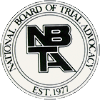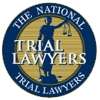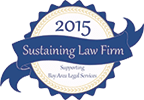Tampa Hernia Mesh Attorneys
An estimated one million patients undergo surgical hernia repair every year making it one of the most common surgical procedures. Hernia repair can either be performed laparoscopically or through an open incision (commonly referred to as “open repair”). In open repair, a surgeon makes an incision near the hernia and the weakened muscle area is repaired. Open repair can be done with or without surgical mesh devices (synthetic material or animal tissue), but the majority of open repairs are done using mesh since it can decrease both the overall surgery and patient recovery time. There are several different types of hernias:
- Abdominal wall hernias occur in the abdominal wall and these types of hernias are particularly common among men.
- Incisional hernias occur at an incision site from a previous surgical procedure. Incisional hernias account for 15-20% of all hernia repairs.
- Inguinal hernias occur in the groin or scrotum area.
- Umbilical hernias occur in or near the belly button area in both infants and adults. The majority of umbilical hernias will eventually heal on their own.
- Hiatal hernias occur in the area where the stomach meets the esophagus.
Complications With Hernia Mesh
Hernias can be surgically repaired using a variety of methods such as sutures, biologic (human or animal) grafts, and synthetic mesh. Unfortunately, many serious adverse events have been reported to the FDA on synthetic hernia mesh. Some complaints have been associated with recalled mesh products that are no longer on the market, but some complaints concern products that are still widely available. The most common adverse events involving hernia mesh include: pain, infection, hernia recurrence, adhesion formation, bowel obstruction, mesh migration, mesh shrinkage, and perforation injuries to surrounding organs.
The safety and efficacy of certain hernia mesh products is very alarming. If you or a loved one have suffered a serious complication following hernia mesh repair surgery, please contact an experienced Tampa mesh attorney at Alley, Clark & Greiwe for a free consultation about your legal rights.
Manufacturers/Model Names of Hernia Mesh Products
The serious medical problems associated with hernia mesh have not been associated with just one particular brand of mesh. If you are uncertain the type of mesh that was used during your surgery, you should contact your surgeon. Also, if you have any signs or symptoms of extreme pain, our Tampa hernia mesh attorneys recommend that you see your physician immediately for evaluation.
The top manufacturers of hernia mesh include:
Ethicon:
Physiomesh (see below)
Prolene
Proceed
Atrium:
C-Qur (see below)
ProLoop
Prolite
Bard:
3D Max
Composix
Kugel Hernia Patch
Marlex (a/k/a Flat Mesh)
SpermaTex
Sepramesh
Perfix Plug
Ventralight
Ventralex
Ventrio
Visilex
Ventrio ST
Gore:
DualMesh
Covidien: (formerly Tyco, now Medtronic)
Parietex
Symbotex
ProGrip
Parientene
Surgipro
Ethicon Physiomesh Hernia Mesh Complications
In May of 2016, Ethicon (a subsidiary of Johnson & Johnson) voluntarily withdrew Physiomesh hernia mesh from the U.S. market after independent studies revealed high rates of complications with the product. Physiomesh is a large pore, flexible composite mesh made of non-absorbable polypropylene. Polypropylene is the same material Ethicon used in its transvaginal mesh products. Some of these products were phased out in 2012 after thousands of lawsuits were filed by women injured by the synthetic mesh made by Ethicon.
Ethicon received clearance to sell Physiomesh in 2010 from the FDA through the its controversial 510k Pre-Market Approval (PMA) process. This is a “shortcut” allowed by the FDA when a medical device manufacturer or drug company demonstrates that a “new” product is “substantially similar” to a product that has already been approved. This process can be utilized even if the previously-approved product has been recalled from the market. Manufacturers do not have to run any clinical trials before marketing 510(k) approved medical products, nor are manufacturers mandated to follow patients post-operatively. In requesting approval, Ethicon said Physiomesh was substantially equivalent to its Proceed hernia mesh. However, Ethicon recalled its Proceed hernia mesh in 2006 because the layers separating and exposing the underlying polypropylene mesh during a hernia repair procedure could increase the risk of patients having adhesions and bowel fistulas.
Atrium Medical C-Qur (“Secure”) Hernia Mesh Injuries
Lawsuits against Atrium Medical Corporation are mounting over its C-QUR (“Secure”) mesh. C-QUR mesh is a synthetic mesh used in hernia repair surgery. The mesh is also used in other types of surgeries where additional supportive material is needed to reinforce weakened or damaged tissue. C-QUR Mesh is a polypropylene mesh with an outer coating of a gel made from triglycerides and omega 3 fatty acids. Just like many transvaginal mesh products that have been under fire for serious safety issues, C-Qur hernia mesh is made from polypropylene which is a type of synthetic material known to shrink, erode, and become infected when implanted in some patients.
Recent lawsuits filed across the U.S. allege C-Qur mesh is defective and dangerous. Some patients have suffered severe personal injuries and required multiple revision surgeries from the failure of C-QUR hernia mesh products.
|
TIMELINE OF ATRIUM MEDICAL C-QUR MESH PROBLEMS |
|
|
March 2006 |
Atrium C-QUR mesh was approved by the FDA through the controversial 510(k) Pre-Market Approval (PMA) process. This is a “shortcut” allowed by the FDA when a medical device manufacturer or drug company demonstrates that a “new” product is “substantially similar” to a product that has already been approved. Manufacturers do not have to run any clinical trials before marketing 510(k) approved medical products, nor are manufacturers mandated to follow patients post-operatively. |
|
March 2009 |
A study published in the British Journal of Surgery found that the design of the C-QUR and similar “coated” meshes prevent adhesion formation when first implanted, but within 30 days the absorbable coatings actually contributed to adhesion formation. |
|
October 2012 |
FDA issued a warning letter to Atrium about their failure to adequately address safety complaints about C-QUR mesh and other products. The warning letter mentions complaints involving C-QUR mesh infections were not properly investigated and further indicates the company appeared to be ignoring numerous sterility complaints (the most disturbing being that the FDA found numerous instances of human hair being embedded into Atrium’s sterile medical devices). |
|
August 2013 |
FDA announced a Class 2 recall of C-QUR Edge Mesh because the coating on the mesh could stick to the inner packaging and peel off the mesh in high humidity conditions. The recall affected 1,501 units. |
|
February 2015 |
A federal judge from the U.S. District Court for the District of New Hampshire entered a consent decree of permanent injunction against Maquet Holding B.V. & Co. KG (Maquet) and two of the company’s officers for repeatedly failing to correct violations at three of its companies: Atrium Medical Corporation (Atrium) in Hudson, New Hampshire; Maquet Cardiovascular, LLC (Maquet CV) in Wayne, New Jersey; and Maquet Cardiopulmonary AG (Maquet CP) in Rastatt and Hechingen, Germany. Maquet and its related companies manufacture a wide variety of medical devices that are commonly used in hospital and health care settings, including oxygenators, tubing sets, catheters, life support systems, and surgical mesh. |
Contact Our Tampa Hernia Mesh Attorneys for a Free Consultation
If you have suffered a serious complication following hernia repair surgery including hernia mesh revision surgery, please contact an experienced Tampa hernia mesh attorneys at Alley, Clark & Greiwe for a free consultation about your legal rights.
Helpful Consumer Links
- Click here to read Safety Communication on Surgical Mesh from the FDA.
- Click here to read about hernia complications from the FDA.




















